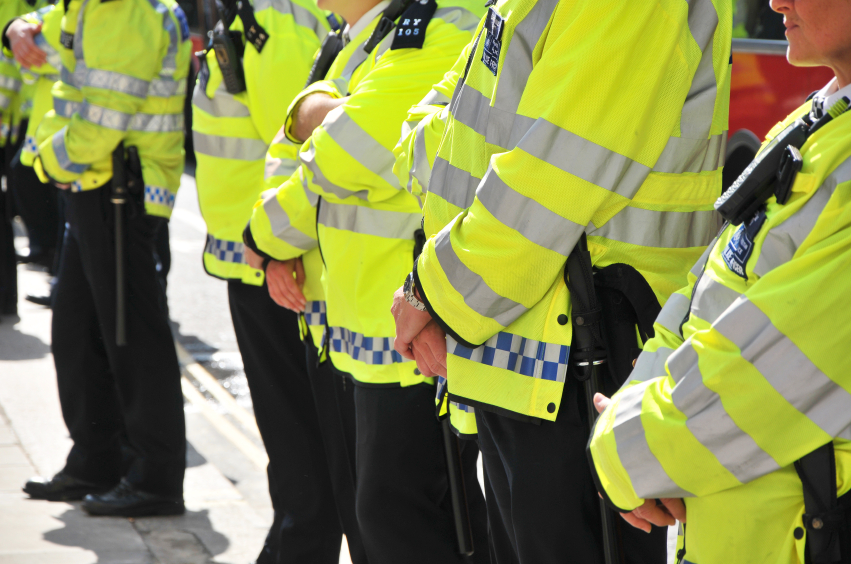With less than three weeks to go before the General Election, political parties have been rolling out their plans for law, justice and immigration.
In a previous article, the Justice Gap scrutinised the Labour and Conservative manifestos, comparing the law and justice policies of the two primary contenders for government. Now, we shift our focus to the fringe parties, which have received increased support during the election run-in.
Policing
The Greens advocate for ‘policing by consent’, aiming to tackle institutional racism, misogyny, homophobia and ableism by ‘rooting out’ officers unfit for police roles. They propose making stop and search an ‘exception’ and pledge that young people will ‘never’ undergo inappropriate strip searches. The party stresses continuous ‘diversity training’ and ‘open access’ to policing data.
In addition to ending the ‘disproportionate use’ of stop and search, the Lib Dems support a statutory duty of candour for officers, referred to as the ‘Hillsborough law’. They also pledge fair pay rises for police officers, the integration of domestic violence experts within forces, and stricter targets for transferring mental health cases to specialists.
Reform UK plans to boost police numbers by 40,000 over a five-year Parliament, advocating for ‘common sense policing’ by removing diversity roles and regulations. They prioritise recruiting ‘ex-military personnel’ for police roles, emphasising ‘crime prevention, discipline and fitness’.
Plaid Cymru seeks to devolve law and justice powers to establish a ‘Welsh way’ of policing. They recommend ‘specialist training and support’ for officers covering issues of ‘coercive control, stalking and homicide risk’.
Crime
The Greens state they will make misogyny a hate crime, decriminalise sex work and conduct investigations into the ‘social factors’ that underpin knife crime. They also pledge increased funding for local authorities to address the domestic violence and rape crises.
The Lib Dem manifesto guarantees that ‘all burglaries’ will be investigated by police. They promise to publicly ‘name and shame’ banks with the poorest records in preventing fraud and aim to reduce the time from offence to sentencing by 50%.
They also emphasise the importance of modern slavery protections and cross-border crime cooperation, particularly with Europol and Eurojust.
Reform backs a New York-style, ‘zero-tolerance’ approach to crime prevention. They commit to ‘substantially increasing’ stop and search, ‘clamping down’ on anti-social behaviour and advocating for rigorous evidence requirements for hate crime investigations. They identify foreign gang crime as a ‘major issue’ and propose a dedicated national agency for child protection.
Under a newly established Welsh Minister for Justice, Plaid Cymru would create a victims commissioner and a domestic abuse register, aiming to prioritise victims’ rights.
On drugs, the Greens, Lib Dems and Plaid Cymru promote a public health approach. All three parties endorse the decriminalisation of soft drugs and criticise the UK’s ‘counter-productive’ drugs laws. They advocate for the development of a legally regulated market for cannabis and emphasise a more humane approach to addiction, including increased funding for harm reduction initiatives. In contrast, Reform adopts a tough stance on drugs, pledging to broaden the criminal law to include a new offence for ‘substantial possession of drugs’ and allocate more resources to drug intelligence services.
Prisons
Both the Greens and the Lib Dems explicitly endorse more training and educational opportunities within prisons, along with implementing diversion programmes for low-level offences that often result in short prison terms. The Lib Dems specifically propose making youth diversion a statutory duty and replacing young offender institutions with ‘secure schools and homes’.
Reform UK supports mandatory life sentencing for repeat violent offenders, in addition to drug dealers and traffickers. They plan to build 10,000 new detention centres, commissioning disused military bases if needed, and establishing ‘high-intensity training camps’ for young offenders.
While Plaid Cymru fail to mention diversion schemes, their manifesto does emphasise that sentencing should prioritise ‘what works best’ in preventing recidivism. This includes introducing ‘community-based sentences’ for low-risk offenders and ‘community-based prevention and rehabilitation’ initiatives.
None of the manifestos address IPP sentencing or the Criminal Cases Review Commission (CCRC), despite growing calls for their reform, as reported in the Justice Gap.
Access to Justice and Courts
The Greens, Lib Dems, and Plaid Cymru all aim to simplify and make the legal aid system more secure. The Greens pledge £11bn to the Ministry of Justice to restore legal aid budgets, ensure that the criminal bar is well funded, and repair court buildings. Lib Dems commit to creating a ‘new right to affordable, reasonable legal assistance’ which includes a workforce strategy that guarantees there are enough criminal barristers, judges and court staff. Plaid Cymru vows to eliminate ‘legal aid deserts’ and pilot a ‘courts in the community’ scheme to resolve local justice needs, particularly in communities affected by court closures.
Reform’s manifesto does not mention legal aid or access to justice. However, it does commit to increasing the justice budget by £2bn to ‘cut delays’ and recruit more ‘high calibre staff’. They propose creating a special division in the family court for child maintenance. Reform opposes so-called ‘foreign courts’ overruling domestic judges, pledging to protect British citizens from EU arrest warrants and enabling British courts to deport those deemed a threat.
Protest and Civil Liberties
The Greens, Lib Dems and Plaid Cymru all vow to repeal the government’s anti-protest laws, including the Police, Crime Sentencing and Courts Act, and the Public Order Act. The Green Party said the legislation ‘erodes the right to protest and to free expression’ and also proposed scrapping the ‘Prevent’ programme. The Lib Dems also hope to introduce anti-SLAPP laws to protect ‘free speech, whistleblowing and media scrutiny’ from lawsuits.
Reform UK wants to ‘enforce existing laws’ to stop ‘hate demonstrations, such as the Free-Palestine marches’. They plan to ‘reform’ the Human Rights Act by leaving the European Convention on Human Rights and blocking rights from being applied in domestic courts.
Immigration and Asylum
The Greens, Lib Dems and Plaid Cymru all oppose the government’s hostile environment policy. Greens would ‘dismantle’ the Home Office, ‘end profiteering’ from applications, and ensure NHS access for all visa holders. Lib Dems and Plaid Cymru would both scrap the Illegal Migration Act and Rwanda scheme, providing ‘safe and legal routes’ as an alternative for migrants.
Reform UK wants to freeze ‘“non-essential immigration’, allowing in only those with ‘essential skills’ who earn above the average salary, such as ‘doctors, nurses and successful businesspeople’. They plan to process asylum claims offshore, deport foreign nationals who commit crimes, and “pick up” migrants in the Channel and return them ‘back to France’. Reform will also tighten visa rules for international students, restricting those who study ‘fake courses’.







